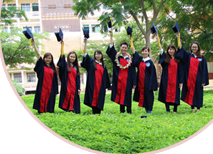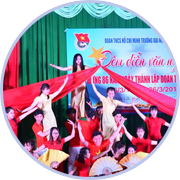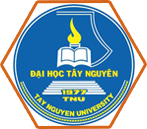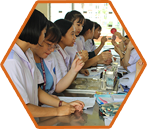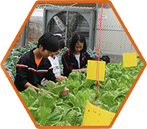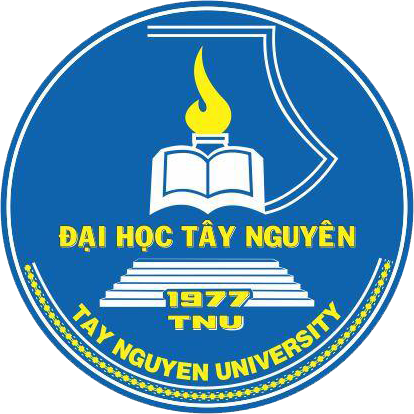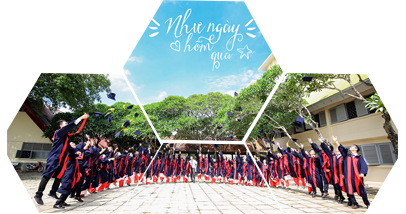Tay Nguyen University was founded following the Government Council's Decision No. 298/CP, issued on November 11, 1977. The institution is mandated to educate and prepare individuals at the university level to meet the diverse needs of the Central Highlands region's economic, cultural, and social advancement.
The establishment of Tay Nguyen University represents a momentous milestone for the local populations residing within the Central Highlands region. This institution's inception is poised to dramatically enhance the accessibility of higher education for minority ethnic youths, enabling them to pursue both undergraduate and graduate studies within the comforting and familiar environs of their homeland.
Established as a reputable institution within the region, Tay Nguyen University has made substantial contributions to the socio-economic advancement of the Central Highlands provinces. The university has successfully educated over 25,000 professionals, including doctors, bachelors, and engineers, across various fields such as medicine, education, information technology, agriculture, forestry, economics, and political science. These individuals have been equipped to serve the Central Highlands' local communities and the broader national landscape.
The influence the university alumni wields is significant, as evidenced by the ascent of numerous graduates to key positions across a broad spectrum of industries. These individuals have become essential components within the governance and organizational structures of various government agencies, political institutions, industrial firms, and research and technological establishments. Their reach extends well beyond the confines of the Central Highlands, with a notable presence and active engagement in various regions throughout the country. This widespread impact underscores the university's critical role in fostering the nation's intellectual prowess and professional expertise.
Tay Nguyen University has undergone a remarkable transformation under the vigilant guidance of the Party and the State, alongside the Ministry of Education and Training stewardship and bolstered by Party Committees and regional authorities. Once a modest educational establishment, it flourished into a comprehensive university, boasting various disciplines, educational levels, and fields of study. The institution prides itself on its robust assembly of scientific and technical personnel, and it has seen a progressive enhancement in its facilities, steering toward modernization.
The educational programs offered by the university are experiencing a significant enhancement in scope, marked by a broadening array of specialized training opportunities. Such an expansion is crucial for developing a robust workforce with cutting-edge scientific and technical skills. These skilled individuals are well-prepared to meet the complex requirements of diverse sectors and administrative levels across the communities of the Central Highlands.
MISSION:
Training high-quality human resources, conducting scientific research, and transferring technology to contribute to socio-economic development, preserving and promoting the cultural values of ethnic communities.
VISION:
By the year 2030, Tay Nguyen University aims to evolve into a distinguished and high-caliber multidisciplinary institution, establishing itself as a national-level center for research and technology transfer across critical domains, including healthcare, education, agriculture and forestry, environment, economics, natural sciences, and social sciences. The university is committed to ensuring that its graduates acquire the requisite knowledge and skills to meet the demands of the evolving societal workforce.
CORE VALUES:
- CREATIVITY in both learning and scientific research.
- QUALITY as the foremost objective.
- INTEGRATION as pivotal values for development.
BOARD OF RECTORS
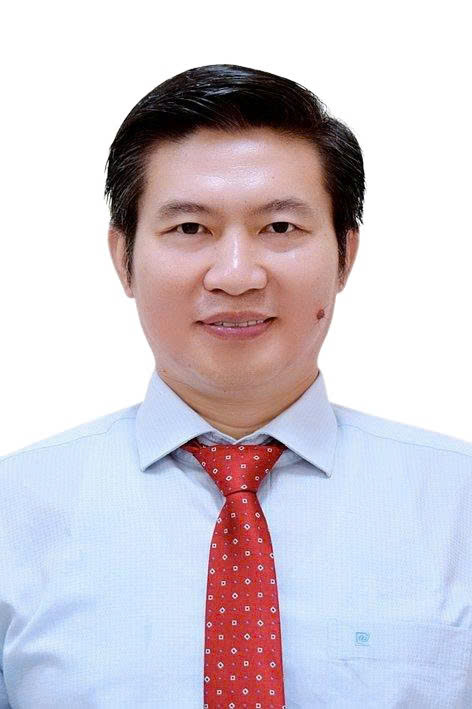
RECTOR
Dr. Nguyen Thanh Truc
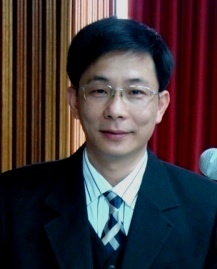 |
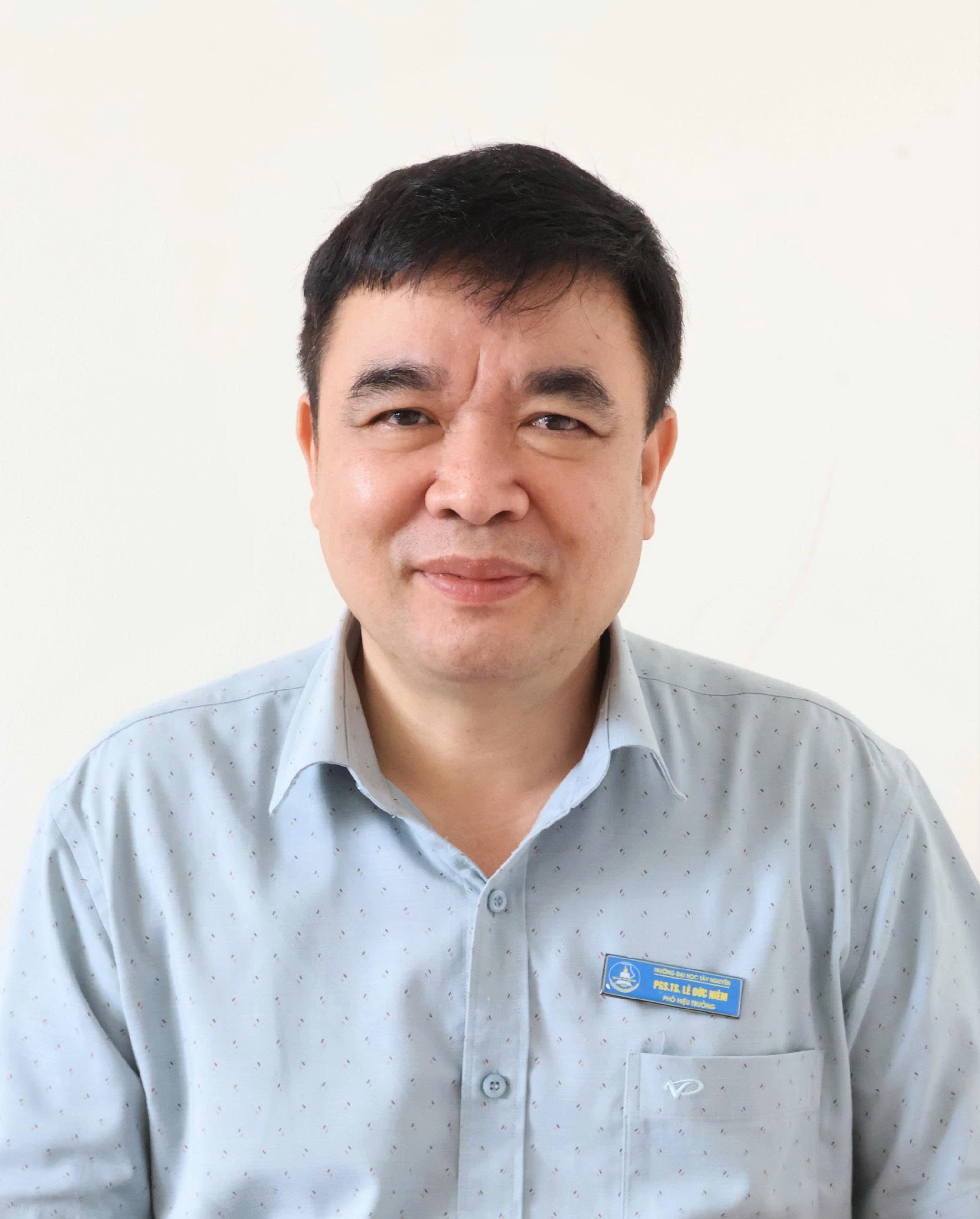 |
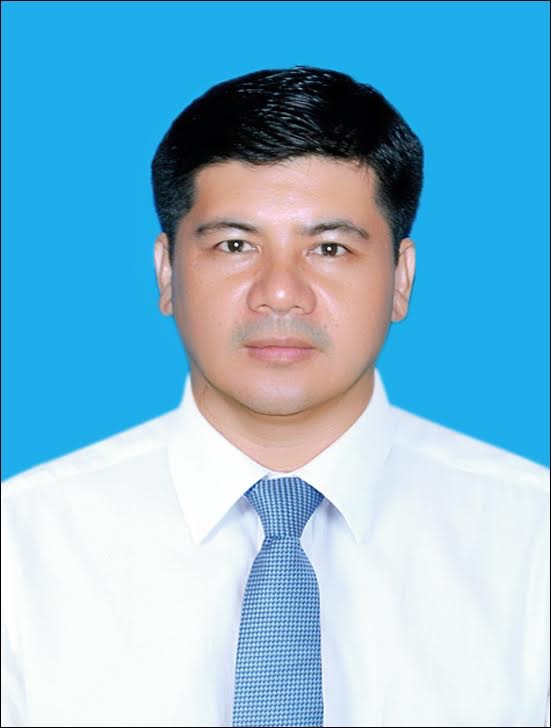 |
|
VICE-RECTOR |
VICE-RECTOR |
VICE-RECTOR |
FUNCTIONAL DEPARTMENTS
1. Department of Facilities (DoF)
2. Department of Student Affairs (DoSA)
3. Department of Academic Affairs (DAA)
4. Department of Administration and General Affairs (DAGA)
5. Department of Science and International Relations (DoSIR)
6. Department of Planning and Finance (DoPF)
7. Department of Quality Assurance (DoQA)
8. Department of Inspection and Legal Affairs (DILA)
9. Department of Organization and Personnel (DOP)
SCIENTIFIC RESEARCH AND INTERNATIONAL RELATIONS
Since 2012, TNU has implemented 01 national projects, 17 ministry projects, 05 provincial projects, 259 university projects, and 72 student projects. Currently, TNU has scientific research and academic cooperation with international universities such as Champasak University and province Attapeu (Laos); Chiang Mai University and Prince of Songkla University (Thailand); Chonnam National University, Sunchon University and Ajou University (Korea); Chi Ba University, Kyoto University and Niigata University (Japan) and Tam Kang University (Taiwan).
ACADEMIC UNITS (07 FACULTIES and 01 TRAINING-RESEARCH INSTITUTE)
1. Faculty of Natural Sciences and Technology (FoNST)
2. Faculty of Economics (FoE)
3. Faculty of Political Theory (FoPT)
4. Faculty of Foreign Languages (FoFL)
5. Faculty of Agriculture (FoA)
6. Faculty of Education (FoEd)
7. Faculty of Medicine and Pharmacy (FoMP)
8. Institute of Biotechnology and Environment (IBE)
SUPPORTIVE, RESEARCHING, AND PRACTICAL UNITS
- Center for Information Technology and Library
- Tay Nguyen University Center for National Defense and Security Education
- Tay Nguyen University Center for Foreign Languages and Informatics
- Tay Nguyen University Hospital
- Cao Nguyen Practical High School
- 11-11 Practical Kindergarten
GRADUATE SPECIALITIES
Tay Nguyen University, a multidisciplinary university, offers a wide range of undergraduate programs in economics, agriculture, food technology, biotechnology, information technology, pharmacy, mathematics, and teacher education to train individuals to meet the labor market demands.
LIST OF Bachelor’s (or equivalent) programs:
|
No |
Program code |
Major in (Program) |
|
1 |
7720101 |
General Medicine |
|
2 |
7720301 |
B.A. in Nursing |
|
3 |
7720601 |
Laboratory Medicine Technique |
|
4 |
7140201 |
Pre-school Education |
|
5 |
7140202 |
Primary Education |
|
6 |
7140202JR |
Primary Education – Jrai Language |
|
7 |
7140217 |
Literature and Linguistics Teacher Education |
|
8 |
7140231 |
English Teacher Education |
|
9 |
7140205 |
Political Education |
|
10 |
7140206 |
Physical Education |
|
11 |
7140209 |
Mathematics Teacher Education |
|
12 |
7140211 |
Physics Teacher Education |
|
13 |
7140212 |
Chemistry Teacher Education |
|
14 |
7140213 |
Biology Teacher Education |
|
15 |
7140247 |
Natural Science Education |
|
16 |
7220201 |
English Language |
|
17 |
7229001 |
Philosophy |
|
18 |
7229030 |
Literature |
|
19 |
7310101 |
Economics |
|
20 |
7310105 |
Developmental Economics |
|
21 |
7620115 |
Agricultural Economics |
|
22 |
7340101 |
Business Administration |
|
23 |
7340101_1 |
Advanced Business Administration |
|
24 |
7340201 |
Finance and Banking |
|
25 |
7340121 |
Commercial Business Administration |
|
26 |
7340301 |
Accounting |
|
27 |
7420101 |
Biology |
|
28 |
7420201 |
Biotechnlogy |
|
29 |
7480201 |
Information Technology |
|
30 |
7510406 |
Environmental Technology and Engineering |
|
31 |
7540101 |
Food Technology |
|
32 |
7540104 |
Post-harvest Technology |
|
33 |
7620110 |
Crops Science |
|
34 |
7620110_1 |
High-technology Farming |
|
35 |
7620112 |
Plants Protection |
|
36 |
7620205 |
Silviculture |
|
37 |
7620211 |
Forest resources and environment conservation |
|
38 |
7850103 |
Land management |
|
39 |
7640101 |
Veterinary Medicine |
|
40 |
7620105 |
Animal Science and Husbandry |
* College training programs and College - university interlinking programs
Business Administration, Accounting, Finance -Banking, Animal Science, Crop Science, Sylviculture, Forest Resources and Environment Management, and Land Management.
- Pre-university training programs for ethnic minorities
-The total number of students in the school year of 2017 - 2018 was about 11.222.
GRADUATE PROGRAMS
Master’s programs:
Tay Nguyen University is implementing 12 master's degree programs (or equivalent) as follows:
- Veterinary Medicine;
- Experimental Biology;
- Animal Science and Husbandry;
- Silviculture;
- Crops Science;
- Agricultural Economics;
- Economic Management;
- Mathematical Analysis;
- Theoretical Physics and Mathematical Physics;
- Linguistics;
- Biomedical Science;
- Specialist Level I doctor degree in General internal medicine.
Doctoral programs:
Tay Nguyen University is implementing 05 doctoral training majors in the fields of Science, Technology, Agriculture, and Economics as follows:
- Silviculture
- Animal Science and Husbandry
- Crops Science
- Biotechnology
- Agricultural Economics
EDUCATIONAL ACHIEVEMENTS
Tay Nguyen University (TNU) has achieved significant milestones over its 45-year history. TNU has trained over 27.000 students, including more than 1716 ethnic minority students. TNU has also trained 11 doctoral students and over 1209 master students in Forestry – Agriculture, Biology, Veterinary Science and Parasitology – Entomology, and 130 students in General Internal Medicine and General Surgery. TNU has also cooperated with eight other universities in Vietnam to conduct training for over 1857 master students in Forestry – Agriculture, Medicine, Linguistics, Pedagogy, English, Economics, Information Technology, and Education Management. Since 2008-2009, TNU has been training students from the Lao People's Democratic Republic and Cambodia.
AWARDS
The President of Vietnam awarded TNU the third-class independent medal and the first--, second-, and third-class labor medals.
ONLINE
We have 6336 guests and no members online




